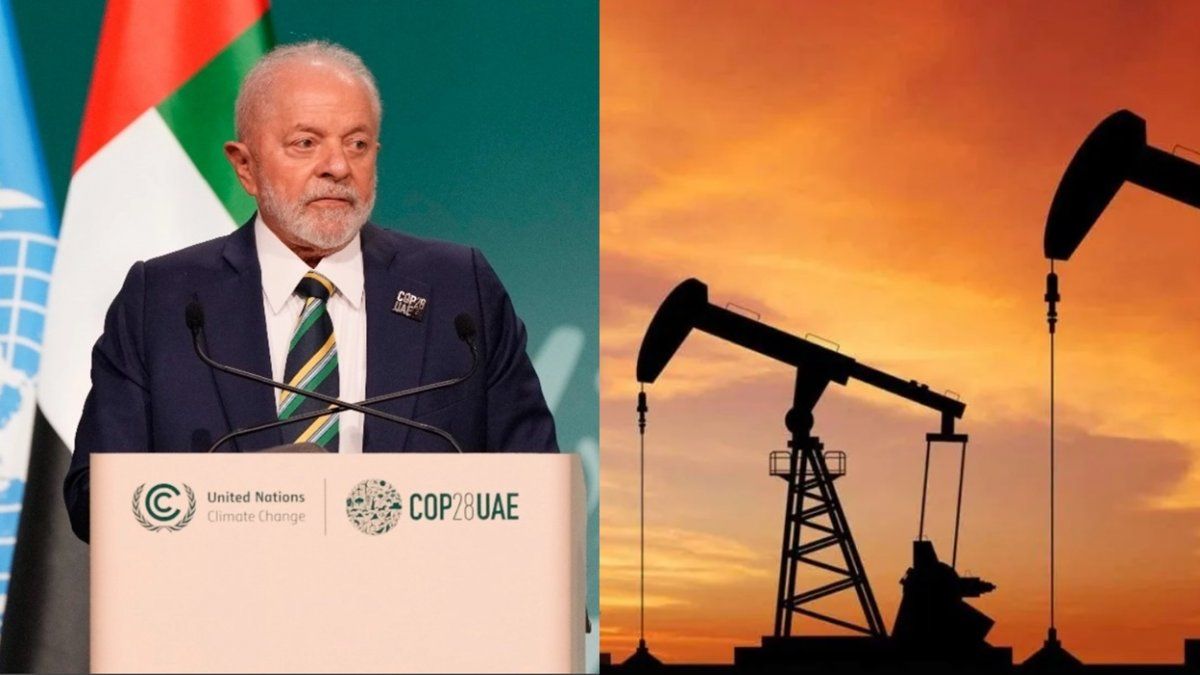The Brazilian president, Luiz Inácio Lula da Silva, confirmed at the Dubai summit on climate change that his country will join OPEC+, although with the aim of convincing that group of gmajor oil exporters to abandon fossil fuels.
Brazil was invited to join that group, formed by the 13 members of the Organization of Petroleum Exporting Countries (OPEC) and ten other crude oil producers, led by Russia. The South American giant should join OPEC+ andn January 2024.
“Everyone was scared by the possibility of Brazil joining OPEC,” Lula declared at a meeting with civil society at COP28 in Dubai.
“Brazil will not participate in OPEC, [pero] Brazil will participate in OPEC+, that name is so elegant,” Lula said, according to the transcript of the meeting sent by the Brazilian Presidency.
“I think it is important that we participate in the OPEC+because we have to convince the countries that produce oil that they have to prepare for reduce fossil fuels“, declared the Brazilian president. “Preparing means taking advantage of the money they earn from oil and making investments, so that a large continent like Latin America can produce the renewable fuels they need,” he added.
Lula came to COP28 with a rainforest defender agenda, including a proposal to finance the fight against deforestation that would involve achieving international financing in exchange for the preservation of forests.
What is OPEC
The Organization of Petroleum Exporting Countries (OPEC) is a group of 13 of the world’s largest oil exporting nations. It was founded in 1960 by the Islamic Republic of Iran, Iraq, Kuwait, Saudi Arabia and Venezuela to coordinate oil policies and create a support system between countries.
The members of the OPEC They collectively control a significant portion of the world’s oil supply, meaning they can effectively set the price of oil and avoid any volatility that could negatively affect members’ economies.
The 13 current members of OPEC include:
- Iran (founder)
- Iraq (founder)
- Kuwait (founder)
- Saudi Arabia (founder)
- Venezuela (founder)
- Algeria
- Angola
- Congo
- Equatorial Guinea
- Gabon
- Libya
- Nigeria
- The United Arab Emirates
oil.jpg
The members of the OPEC They collectively control a significant portion of the world’s oil supply.
The organization distinguishes between founders and full members in terms of voting rights. To be accepted into OPEC, a country must have a substantial net export of crude oil, interests fundamentally similar to those of the Member Countries, and must be accepted by a three-quarters majority of the Full Members, including the concurring votes of all. Founders members.
There is another kind of membership in the OPEC known as “Associate member”, which is a net oil exporting country that does not qualify for full membership. They can still receive special conditions as long as their interests are aligned with the group.
What is OPEC+ and who makes it up?
OPEC+ is made up of members of OPEC, to which are added other producers: Azerbaijan, Bahrain, Brunei, Kazakhstan, Malaysia, Mexico, Oman, Russia, Sudan and South Sudan.
These countries participate in meetings with OPEC and can jointly decide the actions to be taken, but the provisions agreed upon by the main organization They are not binding on them. That is, it may be the case that OPEC decides on production cuts, and the additional members of OPEC+ do not apply them. It should be noted that the largest producers within OPEC-+ are Saudi Arabia and Russia.
Source: Ambito




